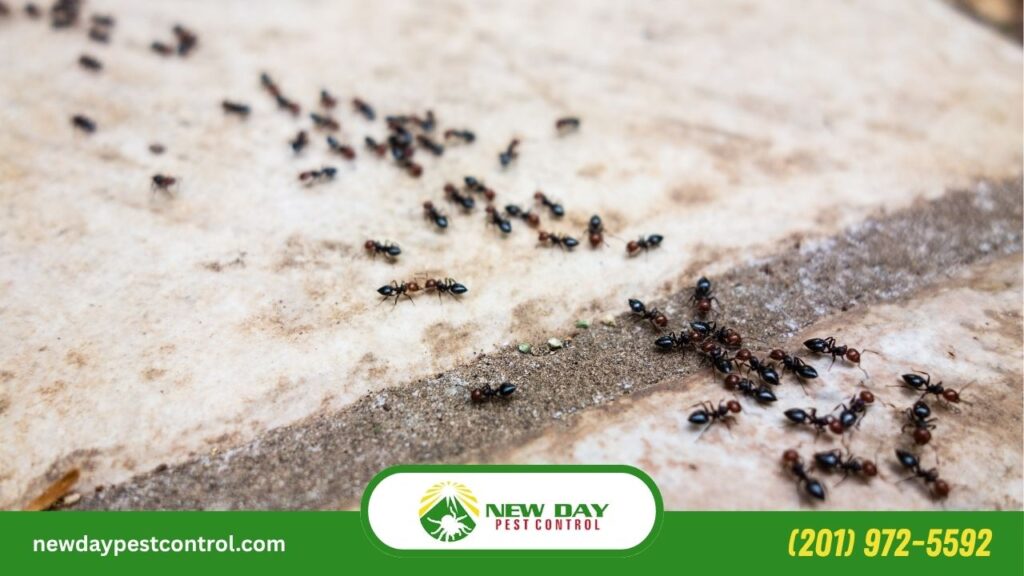Ants are among the most persistent pests homeowners face, especially in New Jersey. No matter how many times you spray, wipe, or trap them, they seem to return with a vengeance. The key to solving this frustrating cycle lies in understanding ant colony behavior—how they operate, why they invade, and why DIY methods often fall short.
The Structure of an Ant Colony
Ant colonies are highly organized societies with distinct roles:
- The Queen(s):
- The heart of the colony, responsible for laying eggs.
- Some species, like carpenter ants, may have multiple queens, making elimination harder.
- Without eliminating the queen, the colony will continue to repopulate.
- Workers:
- Sterile female ants that forage for food, care for the young, and defend the nest.
- They leave pheromone trails to guide others to food sources.
- Males & Reproductives:
- Their sole purpose is to mate with new queens during swarming seasons (typically spring and summer).
Why DIY Methods Fail
Most store-bought ant sprays and baits only kill the visible workers—not the colony itself. Here’s why:
- Pheromone Trails Persist: Even if you kill some ants, the scent trails they leave behind guide new workers to the same food sources.
- Hidden Nests: Ants often nest in walls, under floors, or outdoors, making it hard to reach the queen.
- Multiple Entry Points: A single colony can send scouts through tiny cracks in foundations, windows, or pipes.
Why Ants Keep Returning to Your Home
1. Food Sources
Ants are opportunistic foragers. Even the smallest crumbs, spills, or unsealed pantry items can attract them. Common attractants include:
- Sugary substances (syrups, soda, fruit)
- Greasy or protein-based foods (meat, pet food)
- Moisture (leaky pipes, damp wood)
2. Seasonal Behavior
- Spring & Summer: Increased activity as ants forage to feed growing colonies.
- Late Summer & Fall: Ants prepare for winter by seeking shelter indoors.
- Winter: Some species (like carpenter ants) remain active inside warm structures.
3. Colony Expansion
When a colony grows too large, it may split into satellite colonies, often inside homes. This is common with carpenter ants, which nest in moist or decaying wood.
How to Break the Cycle
1. Eliminate Attractants
- Store food in airtight containers.
- Clean spills immediately.
- Take out trash regularly.
2. Seal Entry Points
- Caulk cracks in walls, windows, and doors.
- Repair leaky pipes to reduce moisture.
3. Professional Pest Control
DIY methods rarely reach the queen or satellite nests. Professional exterminators:
- Use targeted baits that workers carry back to the colony.
- Locate and treat hidden nests.
- Provide long-term prevention plans.
When to Call New Day Pest Control
If ants keep returning despite your best efforts, it’s time for expert intervention. New Day Pest Control specializes in:
- Colony Elimination: Targeting queens and satellite nests.
- Preventive Treatments: Sealing entry points and applying residual barriers.
- Local Expertise: Understanding New Jersey’s unique ant species and behaviors.
Final Thought
Ants don’t just “go away”—they adapt. By understanding their behavior and taking proactive steps, you can finally break the cycle of reinfestation.

